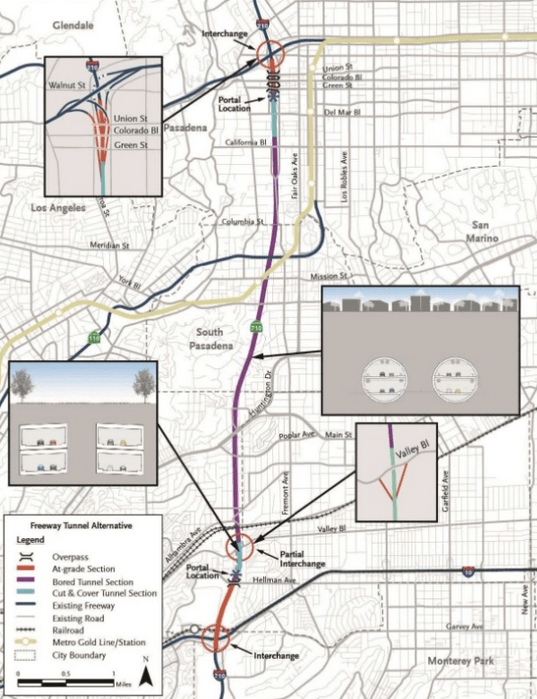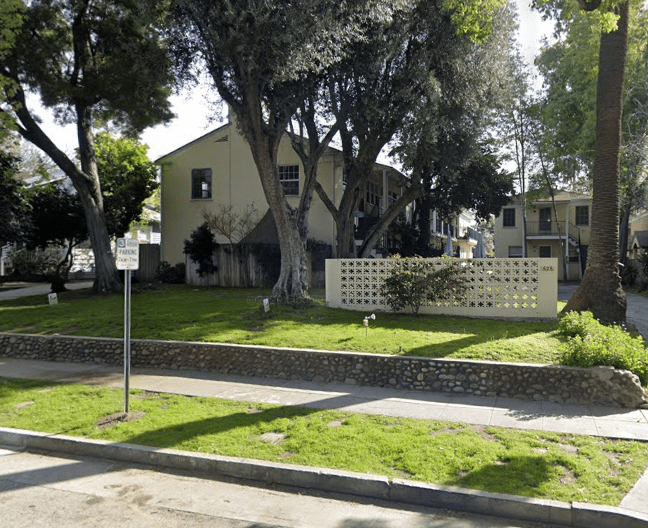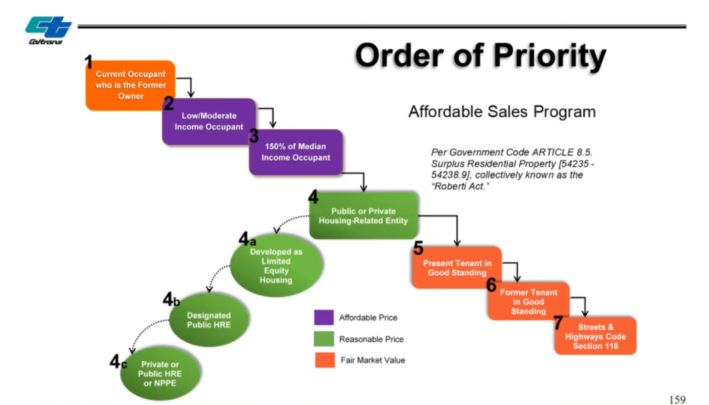Note: GJEL Accident Attorneys regularly sponsors coverage on Streetsblog San Francisco and Streetsblog California. Unless noted in the story, GJEL Accident Attorneys is not consulted for the content or editorial direction of the sponsored content.
Among the many issues the California Transportation Commission is required to weigh in on is the approval of Caltrans sales of "surplus property." This process usually involves rubber stamp approval from the commissioners, who tend to accept Caltrans' viewpoint if there is any dispute.
In the case of at least one of the properties that Caltrans bought in the 1960's in anticipation of extending the 710 freeway through Pasadena, Alhambra, and South Pasadena - a project that was bandied about for decades and officially killed in 2017 - there was definitely a dispute. Tenants in the twelve-unit apartment building in question had gotten together with the city of South Pasadena to submit a proposal to buy the property from Caltrans so they could stay in it.
They say that 1979's Roberti law gives tenants first right of refusal, and that their proposal to buy the properties, backed up with financing, should take precedence over a proposal from an outside group.
But Caltrans had a different take. The managers of the 710 right-of-way property sales decided to sell the property to a private nonprofit, rejecting the tenants' proposal. They claim that Roberti tied their hands because of a decision tree that forces them to treat tenants of multifamily buildings differently from people renting single family homes that may want to buy their properties from Caltrans.
The tenants and the city of South Pasadena went to court to request a restraining order on the sale; meanwhile Caltrans put the item on the CTC agenda for last week, because they needed approval in order to close escrow, which couldn't happen until the CTC approved the sale.
When Caltrans staff presented the item, they said that if the CTC did not approve the sale, they could "be in potential breach of contract."
The two interpretations of Roberti are something for the court to decide, and so far the court has decided it is too early to weigh in. There is a hearing set for later this week on the matter - perhaps because Caltrans expected to have approval by then.
But that's not what Caltrans program director Carolyn Dabney told the CTC. She said that the order to pause the sale was "denied" by the judge, and reiterated the claim that Caltrans "could be in breach of contract" if the CTC did not approve the sale immediately.
Commissioner Bob Alvarado proposed approving the sale and letting the court figure it out; Commissioner Joseph Lyou proposed a conditional approval that could be revisited after the new court date.
Commissioner Christine Kehoe was not having it. "I am not prepared to go forward with even a conditional approval," she said, expressing frustration that Caltrans would get itself into a tight spot under the presumption that the CTC would come to the rescue with an automatic approval.
"CTC approval is not just a rubber stamp," said Commission Chair Hilary Norton. She confirmed with Caltrans staff that the sales contract spells out that CTC approval is required - and thus the threat of breach of contract was imaginary. "We could vote to deny this altogether. In that case, what would happen?"
The discussion was briefly interrupted to take up a different topic: the sale of 35 acres of surplus Caltrans property to Union City for affordable housing and a "parkway including bike lanes," according to the city's mayor. Several people, including the local BART director, called in to ask the CTC not to approve that sale, saying that the East West Connector "parkway" is focused on moving more cars quickly, and would put pressure on the region to widen a highway through rural Niles Canyon.
The commission voted to approve that sale, and returned to their discussion of the South Pasadena property.
"If the CTC denies approval, it becomes a 'Priority 5,' and then we have to continue back into the waterfall," said program manager Dabney. Only later did the waterfall comment become clear, when Caltrans staff shared a slide that showed their interpretation of the Roberti law, which placed "multifamily tenants" in "Priority 5," coming after priorities 4, 4A, 4B, and 4C.
Commissioner Lyou asked for clarification: Was the court's denial of the temporary restraining order based on the merits of the case? Or was it because escrow had not closed?
"I believe it was the latter," said Dabney.
"I'm pretty disappointed," Lyou responded. "I'm feeling a lot more like Commissioner Kehoe on this. It seems like every opportunity Caltrans had to mess this up, they took. We were misled about the contract; we were misled about the restraining order. I want to amend my motion to delay consideration of this matter until the August meeting."
His motion passed.
Note that the building's tenants say they are prepared to pay full market value for the property, and have obtained financing to do so.
One of the points made by John Primuth, a South Pasadena city councilmember who called in to comment, is that the Caltrans surplus properties "are very old business," and there are many more such properties along the old 710 right-of-way that will need to be sold. "We would like to set proposed policies for all of these properties, under existing rules, and partnering with communities and tenants," said Primuth.
Two current bills, S.B. 381 from Senator Anthony Portantino and S.B. 51 from Senator Maria Elena Durazo, are raising some of these issues in the legislature, although they may not settle them. But whether those bills pass or not, "we still want to work with Caltrans to streamline this process," said Primuth.








